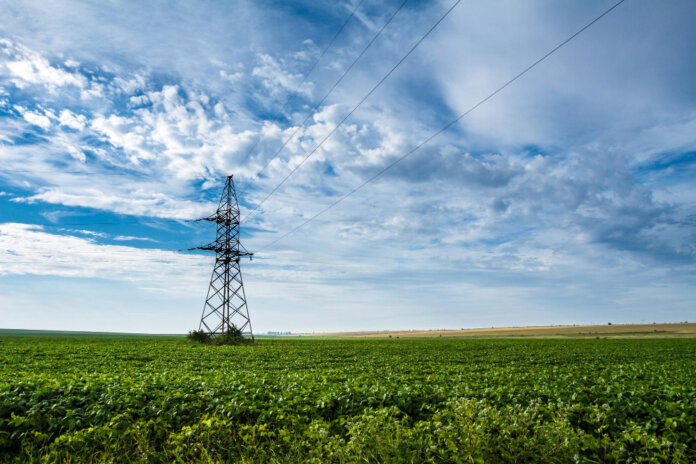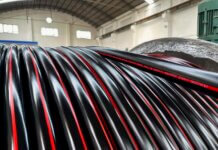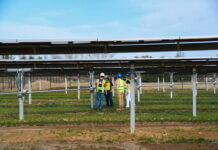Alongside project partners Connexus Energy and U.S. Solar, the U.S. Department of Agriculture (USDA), Great Plains Institute (GPI) and Big River Farms are collaborating on Solar Farmland Access for Emerging Farmers demonstration projects. This pilot project is researching how solar energy development can be increased while also preserving agricultural land.
Funded by the Mortenson Family Foundation and with additional support from the National Renewable Energy Lab (NREL) and Argonne National Lab, these agrivoltaics projects aim to demonstrate safe and scalable operational practices for electric cooperatives and solar site owners to provide farmland access for emerging farmers inside the fence of solar facilities.
In 2022, the Minnesota Department of Agriculture established the nation’s first Emerging Farmers Office, with the intention of helping to remove barriers to farming for those new to the profession, such as new Americans or first-generation farmers who lack access to land or capital. Farmland access has been identified by the Emerging Farmers Office as the most common challenge that emerging farmers face.
“With thoughtful planning and procurement, the community benefits of multi-acre solar projects can be numerous,” says Brian Ross, vice president of renewable energy for Great Plains Institute. “It’s important that we are stacking solutions to local food production and access into the clean energy transition.”
Big River Farms, a program of The Food Group, is an incubator farm and host of the annual Emerging Farmers conference, while the mission of Great Plains Institute is to accelerate the transition to net-zero carbon emissions for the benefit of people, the economy, and the environment. Results of the demonstration project will be published by GPI, NREL and on the AgriSolar Clearinghouse.
“For nearly a decade, Connexus Energy has established a track record of thoughtful stewardship of the land under and around solar arrays,” says Greg Ridderbusch, president and chief executive officer of Connexus Energy. “Safe, affordable, reliable, and increasingly sustainable electric service are our priorities.”
Connexus Energy, the Midwest’s largest electric cooperative, has been nationally recognized for its service reliability, grid innovation and solar land-use practices. Connexus also requires its solar arrays to meet Minnesota’s standard for pollinator-friendly ground cover – in 2018, the cooperative established a commercial apiary in the solar array at its headquarters. This apiary makes honey harvested from the flowering solar arrays that are available for purchase with proceeds benefiting local nonprofits.
Since its founding, U.S. Solar has been committed to achieving the highest standard on the Minnesota Board of Water and Soil Resources’ Habitat Friendly Solar Site Assessment, creating more than a square mile of privately financed pollinator habitat in Minnesota. They have also partnered with local, regional, and national organizations to pilot innovative agrivoltaic approaches and support research leading to the development of replicable best practices as agrivoltaics continues to grow in the solar industry.
“As part of the InSPIRE study network of sites, the National Renewable Energy Lab will discover and document the safe and scalable practices and processes that can enable farmland access to solar sites by emerging farmers,” says Jordan Macknick, lead energy-water-land analyst for NREL. “Utilities and solar site operators trust and utilize NREL’s research to make decisions that are best for their organizations.”
NREL’s InSPIRE study is the nation’s largest and longest-running study of solar farm design and management practices that provide dual uses for agriculture and co-benefits for ecosystems.
Image by cookie_studio on Freepik




